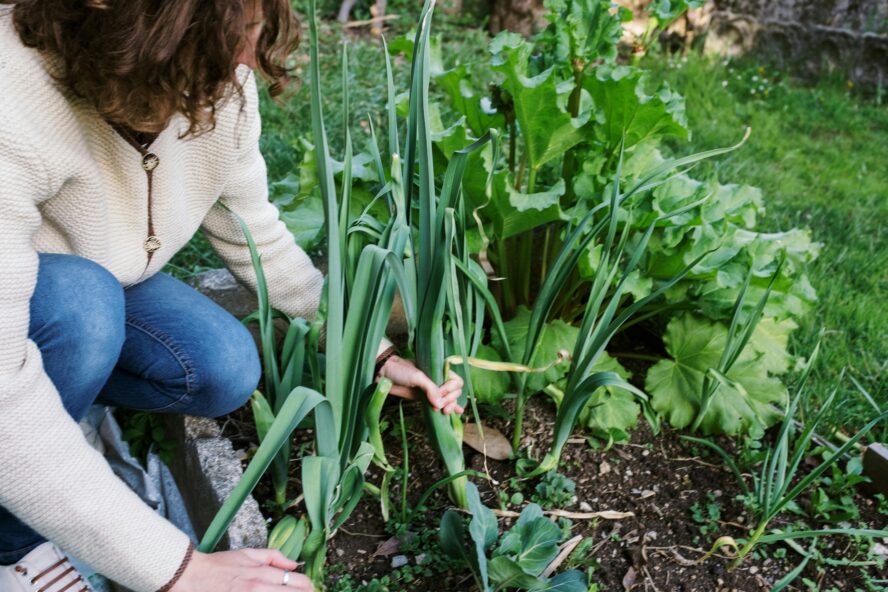5 Tips for Starting A Sustainable Vegetable Garden

With the use of organic gardening methods, you can make your edible vegetable garden more beautiful, productive and healthier for the environment and your family. By amending your soil with natural fertilizers, you can grow, bigger, more bountiful fruits & veggies and you help keep our waterways clean.

Planting complimentary herbs, veggies, and flowers together add diversity, beauty and they benefit from each other. Certain flowers attract the good insects that eat aphids, and support pollinators. By composting, you are making your soil richer, and you are helping by not adding waste to trash dumps. These five tips will help you get started.
1. Test Your Soil
It’s cheap and easy to test soil with a simple test kit. Buy one at your local nursury or online. This way you can see if your soil is acidic or has a high alkaline content. Then you can add compost and fertilizer accordingly. Most plants do well with a balanced ph, but some, like blueberries, like really acidic soil and so will benefit from seaweed-based fertilizers. If using manure, make sure it is 100% organic. Manure from animals that have traces of antibiotics or other hormones can damage your crops.
2. Companion Plant
Reference what plants do well together. For example, planting basil together with tomatoes improves the flavor of tomatoes and repels flies and mosquitoes. Visit Seeds Of Change for more ideas.
3. Remember Flowers
You can add beautiful edible flowers to compliment your veggie kitchen garden, like borage, nasturtium or pink jasmine to your garden. Flowers like yarrow or sweet alyssum will attract good bugs that eat aphids. These also help attract bees to your garden, that will enhance it by cross-pollinating. Edibles that bees love are rosemary and lavender.
4. Compost!
Either indoors or out. For outdoors, you can use food scraps, leaf clippings, and other organic matter. For indoor composting you can check out City Dirt.
5. Mulch
Adding mulch to your garden helps keep down on weeds, aids the soil in retaining moisture, and protects your plants’ roots.
This article was written by Maria Finn, author of “A Little Piece of Earth, How To Grow Your Own Food in Small Spaces” and Founder of City Dirt.
More reading:
Worm Composting – Episode 11
2 Easy Compost Recipes to Get Your Organic Garden Growing
Organic Gardening: Fertilization Tricks of the Trade
7 Easy Steps to Get Your Organic Garden Started
5 Ways to Control Pests in Your Organic Garden
Composting. The Organic Gardeners’ Secret Solution

